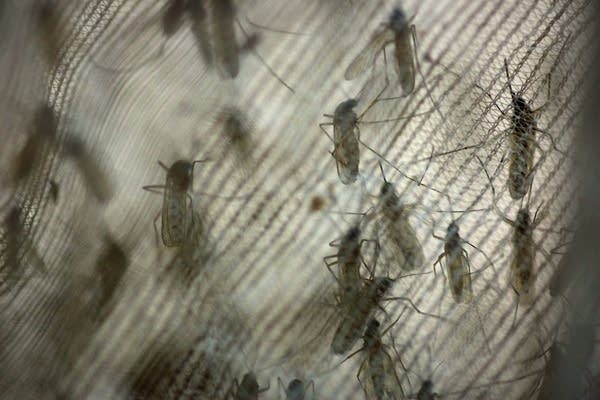It's mosquito season: How to keep them at bay

Trapped mosquitoes at the Metropolitan Mosquito Control District lab in St. Paul, in a 2013 file photo.
Jennifer Simonson/MPR News 2013
Go Deeper.
Create an account or log in to save stories.
Like this?
Thanks for liking this story! We have added it to a list of your favorite stories.


